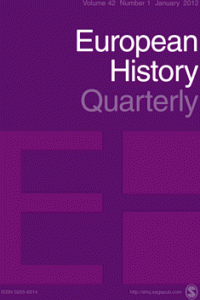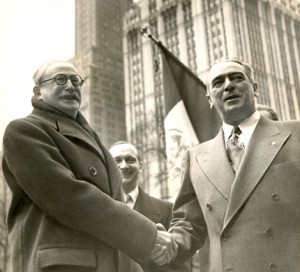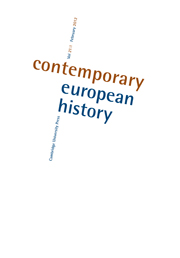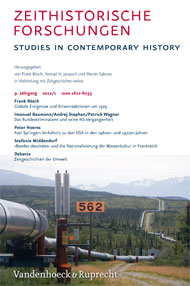 A new issue of Cahiers d’histoire has been published
A new issue of Cahiers d’histoire has been published
This issue is dedicated to the history and images for critical education and contains the following articles:
Introduction: Aux sources de l’histoire syndicale française, retour sur les Bourses du travail
David Hamelin To get the text click here
Pour la liberté du travail : retour sur les origines des Bourses du travail
Nicolas Gallois
Les Bourses du travail, fondées à la fin du xixe siècle, relèvent de la volonté des syndicats de pouvoir se réunir pour établir des liens forts entre les ouvriers et peser dans la lutte des classes. Ces institutions évoluent à contre-courant de ce qu’avait espéré leur fondateur, Gustave de Molinari (1819-1912). Cet économiste de l’école libérale française voit dans la télégraphie électrique et les chemins de fer le moyen de faire circuler librement et rapidement les ouvriers grâce à l’instauration de Bourses du travail fonctionnant à l’image des Bourses de valeurs. C’est à travers le développement de cette liberté tant recherchée (et non à travers le droit de coalition) que les différents maux de la société (la question sociale) pourraient enfin disparaître.
David Rappe
Durant près de 30 ans, les Bourses du travail ont été un élément constitutif et incontournable du syndicalisme français. Au moment où, de la fin du xixe siècle à la Première Guerre mondiale, celui-ci se développe, s’affirme et se structure, les Bourses du travail et leur fédération jouent un rôle central, déterminent et marquent profondément la nature du syndicalisme et, particulièrement, de la Confédération générale du travail (CGT). Elles donnent naissance à un modèle complet et autonome de syndicalisme basé sur une tactique, une stratégie et un projet de société. Le modèle dominant de syndicalisme qui se développe au sein des Bourses du travail propose en effet une tactique de lutte au travers de l’action directe, une stratégie de transformation sociale par la grève générale et des structures d’organisation immédiates et futures, les Bourses du travail et les syndicats ouvriers, appelés à remplacer l’État et le patronat.
Benjamin Jung
L’installation en France de Bourses du travail à partir de la seconde moitié des années 1880 lie dans une communauté de destin – à Paris en particulier – la revendication en faveur de l’abolition des bureaux de placement payants, objets de la colère des ouvriers contraints d’y avoir recours, et l’aménagement local d’espaces de substitution investis par les syndicats. Dans le cadre de la Fédération nationale des Bourses du travail née en 1892, la logique de substitution impose sa primauté sur l’option abolitionniste. Il faut y voir l’empreinte de Fernand Pelloutier, décidé à faire du service de mutualité des Bourses l’outil central de l’émancipation du prolétariat.Mais au début du xxe siècle, alors que les résultats enregistrés sont très en deçà des attentes, la victoire paradoxale de la revendication par la loi de 1904, qui programme la fin des placeurs et encourage les offices municipaux, compromet le rôle des Bourses en matière de placement.
Les Bourses du travail en France et les Labour Exchanges britanniques: une comparaison impossible ?
Malcolm Mansfield
En tant que systèmes de placement, les Bourses du travail françaises et les Labour Exchanges britanniques sont difficiles à comparer. Non seulement leurs fonctions sociales mais aussi leurs modes de fonctionnement se distinguaient nettement. L’article explore ces différences selon un axe politique : les Bourses facilitaient la participation active des ouvriers dans la politique locale et avaient des ramifications nationales. Les Labour Exchanges, par contre, se positionnaient uniquement sur le plan économique, leur gestion se déterminait au niveau national et était inaccessible aux ouvriers. En filigrane, l’article se fonde sur le rapprochement entre le système de travelling benefits et le viatique géré par les Bourses, base d’une comparaison intéressante.
Jean-Michel Steiner
Si le mouvement de construction de Bourses du travail dans les villes industrielles françaises s’inscrit dans le contexte national de la reconnaissance officielle du mouvement syndical des années 1880-1900, il n’en reste pas moins que les paramètres locaux ont pesé pour donner à chaque cas des aspects particuliers. Ainsi la Bourse de Saint-Étienne occupe-t-elle un bâtiment qui ressemble plus à un musée ou à un théâtre sur le fronton duquel on n’a pas jugé utile de graver les mots « Bourse du travail ». Ces caractéristiques singulières, parmi d’autres, résultent d’une histoire complexe, pleine de rebondissements, révélatrice des enjeux politiques et idéologiques qui ont agité les « élites » municipales1 préoccupées des demandes croissantes d’une population ouvrière parfois remuante.
Sylvain Leteux.
Rolande Trempé affirme que « les Bourses du travail sont l’une des institutions qui ont le plus profondément et le plus durablement marqué le mouvement ouvrier français1 ». En partant de l’exploitation d’un dossier de suivi policier, l’auteur tente de vérifier si cette affirmation se justifie dans le cas d’une branche artisanale de l’alimentation, la chambre syndicale ouvrière de la boucherie de Paris, fondée en août 18862. Le cadre chronologique correspond à celui imposé par la source : les rapports de police du dossier prennent fin en 1904. Mais il couvre aussi une période spécifique du mouvement ouvrier français : l’étude s’étend en effet entre deux dates clefs au niveau national, la légalisation des syndicats professionnels en 1884 et le vote de la loi sur les bureaux de placement en 1904, et deux dates majeures au niveau local, l’ouverture de la Bourse du travail de Paris en 1887 et l’expulsion de la CGT en 1905. Dans cette période d’émergence et de structuration des organisations syndicales ouvrières, en quoi la mise en place d’une Bourse du travail va-t-elle répondre ou non aux attentes des ouvriers bouchers parisiens ? Le propos s’articule autour de trois thèmes : le problème des locaux pour les réunions syndicales, le problème du placement des ouvriers (la lutte contre les bureaux de placement privés étant la principale revendication syndicale des ouvriers de l’alimentation jusqu’au vote de la loi de 1904) et le problème du positionnement par rapport au syndicalisme révolutionnaire.
Alain Prigent et François Prigent
Les fonds d’archives inexploités permettent de revisiter la configuration locale des filières syndicales et leurs implications politiques durant l’éphémère expérience de la Bourse du travail de Saint-Brieuc (1904-1909). La naissance de la Bourse survient dans un moment de séparation politique entre le pouvoir des élites républicaines et les ramifications de la jeune organisation socialiste, avant de s’achever dans la foulée de la crise municipale de 1908, qui voit un militant socialiste de la Bourse accéder temporairement à la mairie. L’objectif est ici de confronter le portrait collectif des militants de la Bourse avec l’œuvre littéraire de Louis Guilloux, La Maison du Peuple, où s’entremêlent histoire(s) et représentations. La micro-histoire de la Bourse briochine est ainsi l’occasion de réfléchir à la nature des rapports complexes entre les forces du mouvement ouvrier et les réseaux politiques. Traversée par des courants, des identités et des stratégies contradictoires, la Bourse s’avère la matrice d’une pluralité de milieux militants dans les Côtes-du-Nord.
Marjorie Gaudemer
Les pratiques artistiques au sein du mouvement syndical, en France avant 1914, sont méconnues. Cet article, issu d’une recherche doctorale, porte sur l’activité théâtrale dans les Bourses du travail. Il fait notamment découvrir une troupe au dynamisme et à la longévité exceptionnels : le théâtre du Peuple d’Amiens.
Pierre Bertoncini
L’article prend appui sur l’analyse de quatre temps forts de l’historiographie corse des trente dernières années : Le Mémorial des Corses, L’Encyclopaedia corsicae, L’Atlas ethnohistorique de la Corse et Le Dictionnaire historique de la Corse. Il apparaît que le terme « Bourse du travail » n’apparaît qu’exceptionnellement dans leurs pages. Plus généralement, la place attribuée à l’histoire du syndicalisme dans chacune de ces sommes a été identifiée en elle-même puis comparée. L’article montre ensuite comment des mémoires diverses liées au syndicalisme cohabitent aujourd’hui dans l’île. Il présente le résultat d’une série d’entretiens réalisés auprès de militants des principaux syndicats de salariés de l’île, ainsi que de partis politiques liés historiquement au mouvement ouvrier. L’article cherche à évaluer dans quelle mesure la Bourse du travail, intégrée à une histoire sociale française qui oublie cette institution, dans une île où l’historiographie et la vie politique sont marquées par la lutte entre légitimistes français et nationalistes corses, est un objet qui peut être qualifié de « non-lieu de mémoire ».








